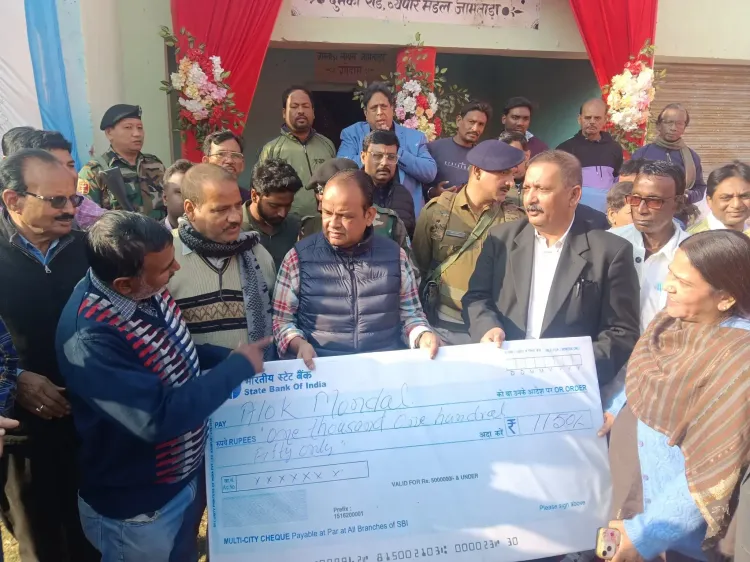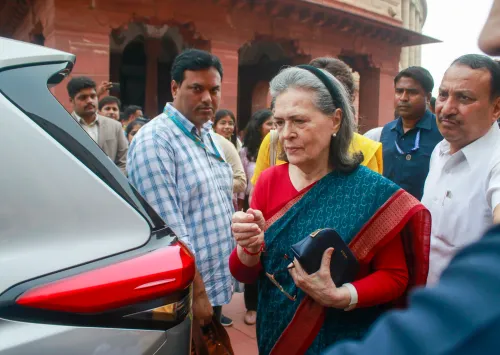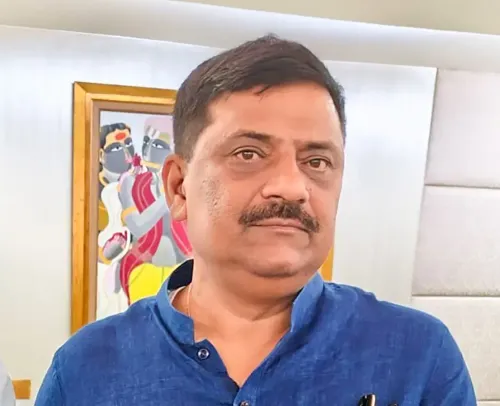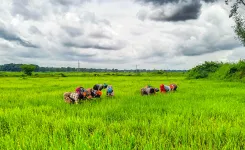Jharkhand Initiates Paddy Procurement, Minister Pledges to Halt Outflow to Bengal

Ranchi, Dec 15 (NationPress) Jharkhand has started the procurement of paddy from farmers at Rs 2,400 per quintal, which includes a Rs 200 bonus above the Minimum Support Price (MSP). State Food Supply Minister Irfan Ansari emphasized that the paddy harvested in the state will not be permitted to flow into adjacent West Bengal or other regions.
During the launch of a paddy procurement center in Nizampura, Jamtara district on Sunday, Minister Ansari encouraged farmers to sell their crops solely at government procurement centers and to avoid middlemen. He stated, "This year’s paddy crop will remain within Jharkhand to bolster the state's food security."
The government has established a procurement target of 60 lakh quintals for this year, matching last year’s goal. A total of 699 procurement centers have been established statewide, with 112 centers commencing operations on Sunday.
On the day of the launch, a considerable number of farmers brought their harvest for sale.
Farmers will receive 50 percent of the total payment for their paddy at the time of sale, while the remaining 50 percent and the bonus will be disbursed after the paddy is processed by rice mills or transported to district-level warehouses.
The Minister mentioned that farmers will earn Rs 2,400 per quintal for standard paddy and Rs 2,420 for grade-A paddy, which includes the Rs 200 per quintal bonus.
Over 2.33 lakh farmers have registered to sell paddy at government centers across the state, with a limit of 200 quintals per farmer to guarantee fair benefits for small and marginal farmers.
The state has reported a remarkable yield this year, with an estimated production of 41.38 lakh tonnes of paddy cultivated over 15.48 lakh hectares. This signifies a substantial increase from the 2023 production of 32.10 lakh tonnes.
Minister Ansari also revealed plans to improve the efficiency of the Public Distribution System (PDS) and Large Area Multipurpose Societies (LAMPS) across the state to provide better assistance to farmers.









